Steering Committee
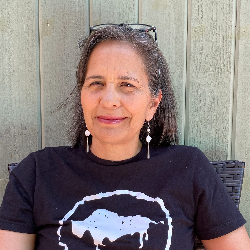
Kim Anderson
Writer, scholar and educator
University of Guelph, FRSC
Dr. Kim Anderson (she/her) is a Métis writer, scholar and educator based at the University of Guelph where she is a Professor and Canada Research Chair in Indigenous Relationality and Storied Practice. Much of her research and writing involves gender and Indigeneity, oral history and urban Indigenous peoples. She has published seven books, including the single authored Life Stages and Native Women: Memory Teachings and Story Medicine (University of Manitoba Press, 2011) and A Recognition of Being: Reconstructing Native Womanhood (Canadian Scholars’ Press, 2nd edition, 2016). Current research projects include co-curating two museum exhibitions and exploring extra-curricular Indigenous language learning on the University of Guelph campus. Kim has been working at “decolonizing” and/or “Indigenizing” the academy through curriculum development in her department (Family Relations and Applied Nutrition) and in leadership roles for strategies that have been developed at the departmental, college and university levels.
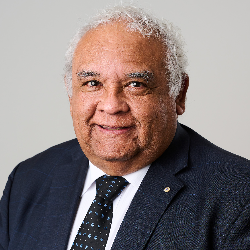
Tom Calma
Professor, AO FAA FASSA FAHA
University of Sydney, AO FAA FASSA FAHA
Tom Calma is an Aboriginal Elder from the Kungarakan tribal group and a member of the Iwaidja and Woolwonga tribal groups. He has been Chancellor of the University of Canberra since 2014 and was the first Aboriginal or Torres Strait Islander man to hold the position of Chancellor at any Australian university.
For over four decades, he has worked at local, community, state and international levels, championing the improvement and advancement of the rights and welfare of Aboriginal and Torres Strait Islander peoples through health, justice, education and employment.
He was appointed an Officer of the Order of Australia in 2012. He was also named ACT Australian of the Year in 2013 and ACT and National Senior Australian of the Year in 2023, in recognition of his human rights and social justice advocacy.
Professor Calma is Co-Chair of Reconciliation Australia and has a professorial role at the University of Sydney. His research interests include pharmacological applications for scabies control, genomics, Indigenous cancers and tobacco control, mental health and suicide prevention.
He was elected a Fellow of the Australian Academy of Science in 2022.
His work has had an enduring impact on public discourse in Australia and continues to facilitate and promote evidence-informed conversation around the Voice and Traditional Knowledges within the Academy and beyond.
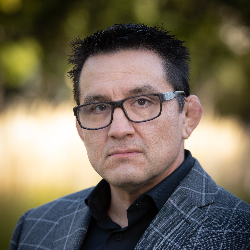
Prof. Frank Deer
President of the RSC College
Royal Society of Canada
Frank Deer is Professor, Canada Research Chair, and Associate Dean in the Faculty of Education of the University of Manitoba in Winnipeg, Manitoba. Frank is Kanienkeha’ka from Kahnawake, a community that lies just south of Tiotia’ke in the eastern region of the Haudenosaunee Confederacy. Frank earned a PhD in Educational Administration from the University of Saskatchewan. Frank has previously served as a classroom teacher in Northern Manitoba and in the city of Winnipeg.
Frank studies Indigenous education and Indigenous religious and spiritual orientations. Frank is working with the College and the Royal Society of Canada on initiatives associated with Indigenous engagement and inclusive excellence.
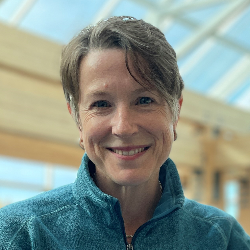
Sarah Del Leeuw
Vice-President
Canadian Association for Health Humanities
Author of seven literary books (creative non-fiction and poetry) and co-editor of five academic texts (includingDeterminants of Indigenous Peoples’ Health in Canada: Beyond the SocialandGeopoetics in Practice), Dr. Sarah de Leeuw is aninterdisciplinaryscholar whose workfocuses broadly on colonial violence, marginalized peoples, and overlooked geographies. The inaugural Vice-President of the Canadian Association for Health Humanities (CAHH) and a member of the National Collaborating Centre for Indigenous Health (NCCIH) for more than 20 years, de Leeuw was appointed in 2017 to the Royal Society of Canada’s College of New Scholars, Artists and Scientists. Author of more than 130 peer-reviewed publications, from book chapters to journal articles and scholarly entries, de Leeuw wasnominated in 2017 for a Governor General’s Literary Prize in non-fiction. De Leeuw holds a Western Magazine Gold Award, two CBC Literary Prizes for creative non-fiction, and the Dorthey Livesay BC Book Prize for poetry. She also holds a PhD from Queen’s University in historical-cultural geography and is a Professor and Canada Research Chair (Humanities and Health Inequities) with the Northern Medical Program in Prince George, a distributed site of UBC’s Faculty of Medicine. She grew up on Haida Gwaii and now divides her time betweenbetween Lheidli T’enneh/Dakelh Territory (Prince George) and Syilx Territory (Okanagan Centre), in so called British Columbia.
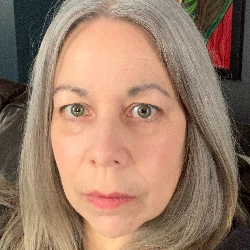
Brenda MacDougall
University Research Chair in Metis Family and Community Traditions, FRSC
University of Ottawa
Brenda is theUniversity Research Chair in Metis Familyand Community Traditionsat the University of Ottawa whereshe’s worked since 2010. She holds a PhD in Native Studies and has beenresearching the history of various Metis communities in Manitoba, North Dakota,Saskatchewan, Montana and Alberta for many years. Her first book wasOne ofthe Family: Metis Culture in Nineteenth Century Northwestern Saskatchewanand she was co-editorContours of aPeople: Metis Family, Mobility, and Historyas well as author on severalarticles on the topic of wahkotowin. She has built a strong program ofresearch about the connections between Metis families across the homeland. Morerecently, she and several colleagues created the Digital Archives DatabaseProject, an online archive of transcribed historical records, with the financialsupport of the Métis and Non-Status Indian Relations Directorate, which will bepermanently housed at the Gabriel Dumont Institute in Saskatchewan.
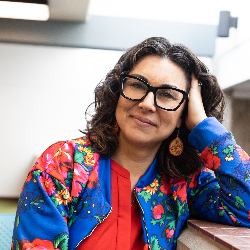
Onowa McIvore
Professor, Department of Indigenous Education
University of Victoria
Dr. Onowa (said Oh-NOW-ah) McIvor ismaskékow-ininiw (Swampy Cree) and Scottish-Canadian from Treaty 5 territory and grew up in Treaty 6 territory (northern Saskatchewan). Her Cree family is from kinosao sipi (Norway House) and Pimicikamak (Cross Lake) Cree Nations in northern Manitoba. Onowa is a grateful visitor on unceded SENĆOŦEN and Lekwungen speaking territories where she is raising her daughters, together with extended family. She is a lifelong learner of nehinawewin/nehiyawewin/nehithawewin (learning across three dialects).Dr. McIvor is a Professor in the Department of Indigenous Education and holds a 5-year President’s Research Chair at the University of Victoria while leading theNEȾOLṈEW̱Research Partnership Grant, a seven-year $2.5mil SSHRC Partnership grant working to understand and enhance Indigenous contributions to reviving Indigenous languages in Canada.
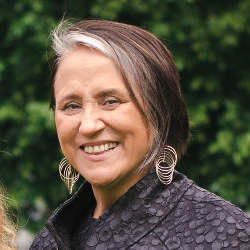
Deanna Reder
Professor, Departments of Indigenous Studies and English
Simon Fraser University
Deanna Reder (Cree-Metis) is a Professor in the Departments of Indigenous Studies and English at Simon Fraser University. A founding member of the Indigenous Literary Studies Association (ILSA), established in 2013, and the Indigenous Editing Association (IEA), established in 2019, she has served as co-Chair of the Indigenous Voices Awards from 2018-2024. She has co-edited four anthologies, including Learn, Teach, Challenge: Approaching Indigenous Literatures (2016) and Read, Listen, Tell: Indigenous Stories from Turtle Island (2017). Her 2022 monograph, Autobiography as Indigenous Intellectual Tradition: Cree and Métis âcimisowina, received the 2023 ACQL Gabrielle Roy Prize. Also, she is co-author of Cold Case North: the Search for James Brady and Absolom Halkett (2020). She and her research team have created an on-line database of Indigenous writing in lands claimed by Canada, available at www.thepeopleandthetext.ca. Reder was inducted into the College of New Scholars, as part of the Royal Society of Canada, 2018-2024.
Date
November 4-6, 2024
Registration closes on
October 4, 2024
Registration Fees
$ 300.00
Hotel Details
JW Marriott Parq Vancouver & the Douglas
39 Smithe Street
Vancouver, BC V6B 0R3
General Information
Contact : events@rsc-src.ca